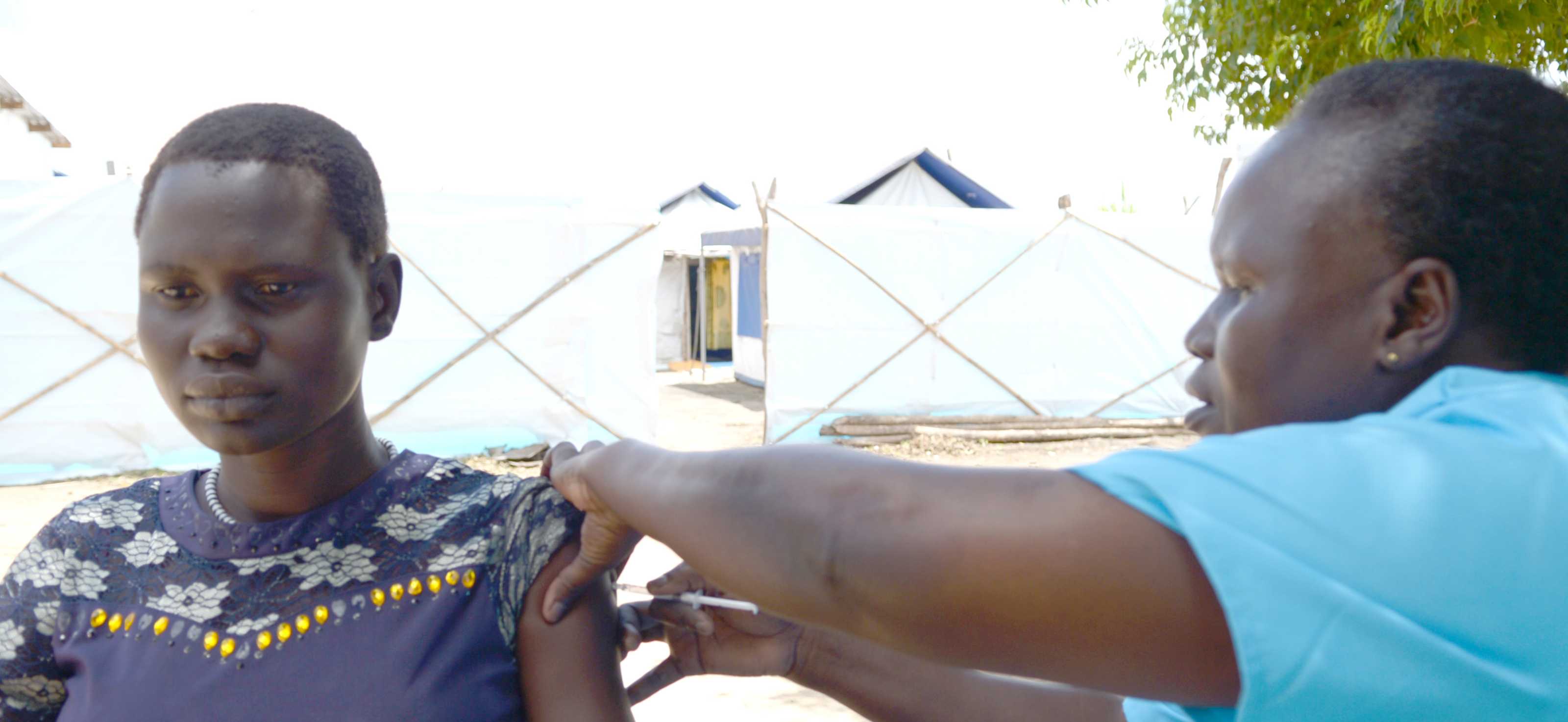Violent outbreaks during South Sudan's civil war forced Adout Malual to flee her home in 2014. Yet having a baby is perhaps what came closest to killing her.
"If this clinic wasn't here, I would have died," she says, her newborn crying heartily in her arms. "The bleeding was so bad. I don't know what I would have done at home."
Malual has three older children and was prepared to deliver her fourth at her temporary home in Mingkaman, a small town along the White Nile River. But pain and intense bleeding prompted her family to seek help from the Mingkaman Clinic.
"We were able to get her here just in time," says Tereza Acheui, the clinic manager and chief midwife.
A three-year miracle
Many other mothers in South Sudan are not so fortunate. Mothers die in childbirth more frequently here than in almost any other place on Earth. And yet this clinic, set up under tents as a temporary means to serve people displaced by fighting, has not had a mother die in labor in more than three years.
The success is thanks to the dedication of the women who serve as nurses and midwives, who commute two hours each way by boat and rotate in and out on a weekly schedule. During their shifts, these health care heroes are on call 24 hours a day so they can provide essential sexual and reproductive health services for women and children in a community where an estimated 40% of the population lives in temporary shelters due to the war.
Health care heroes
An experienced midwife, Tereza attributes South Sudan's lack of medical facilities as a key contributing factor in its prevalent maternal mortality problem. A shortage of skilled medical staff is also part of the problem. Tereza is quick to credit her staff's skill and commitment in marking the achievement of a third year without a maternal death.
"They know what to do in an emergency. They know how to refer people for help when it is needed," she says. "We don't play with a person's life."
Corus World Health's Nancy McGaughey, who helped to establish the clinic, adds, "They choose to work here because they say, 'This is our family.'"
A reputation for saving lives
Your partnership with Corus World Health has ensured that mothers and babies in this fragile, hard-to-reach community are not dying from preventable causes — and that the nurses have the support and supplies they need to continue saving lives.
Seeing the track record of health and success coming out of the clinic, women who have traditionally had their babies at home are now visiting the clinic for prenatal care, assisted delivery and other lifesaving services.
"I had my other three children at home, but I think it is better to have them here," community member Agok Dhor says. "If anything happens, they are prepared to handle it."

